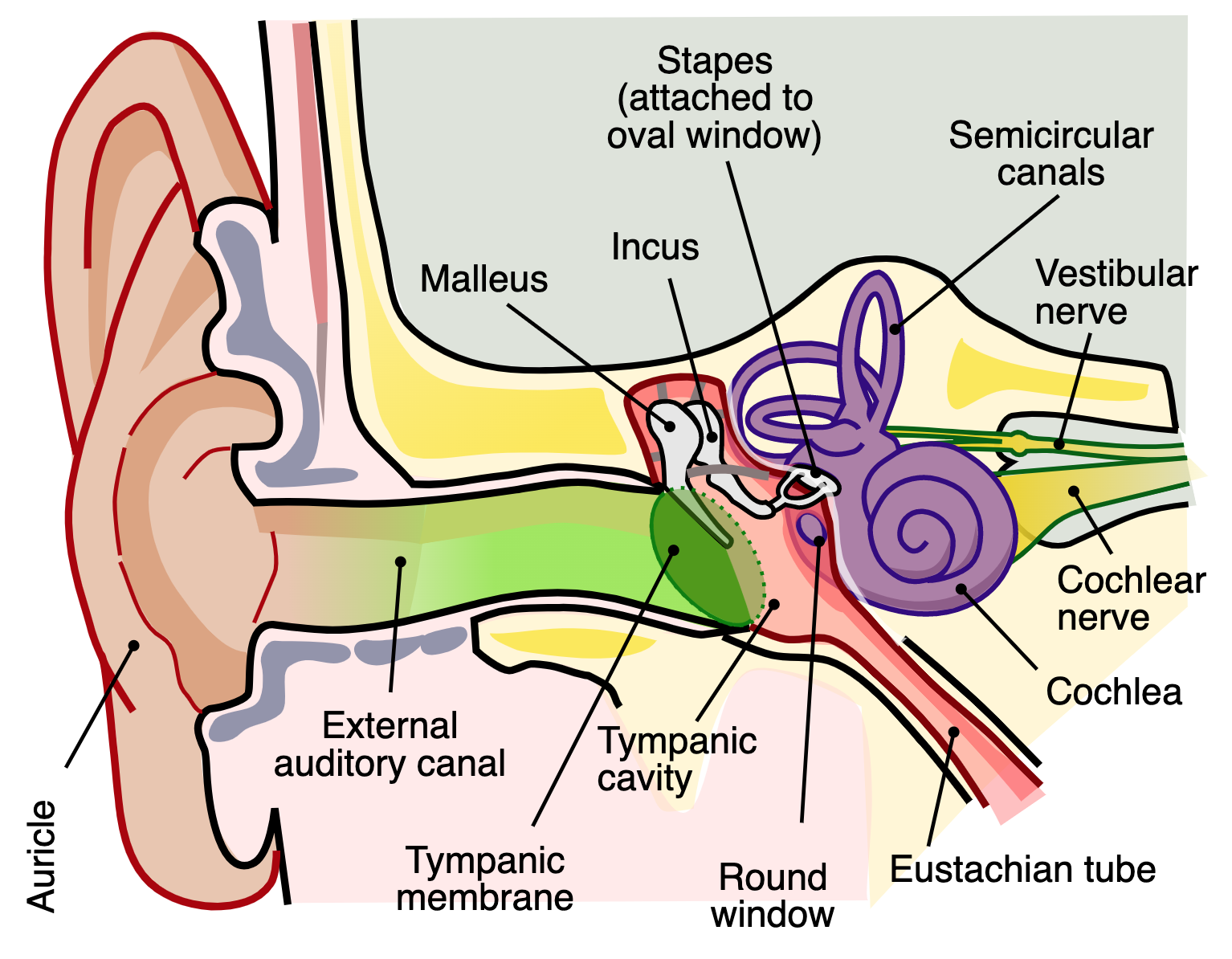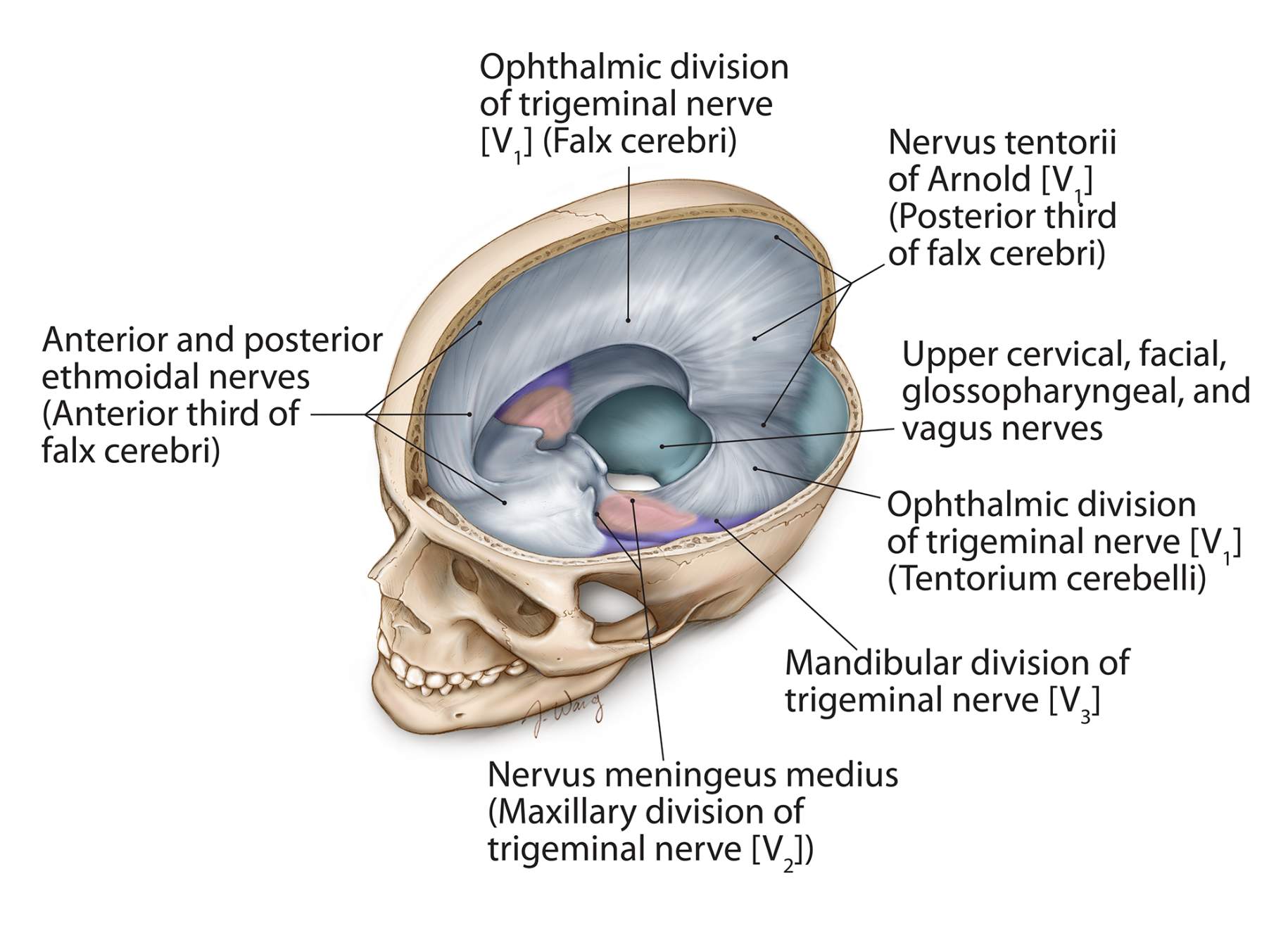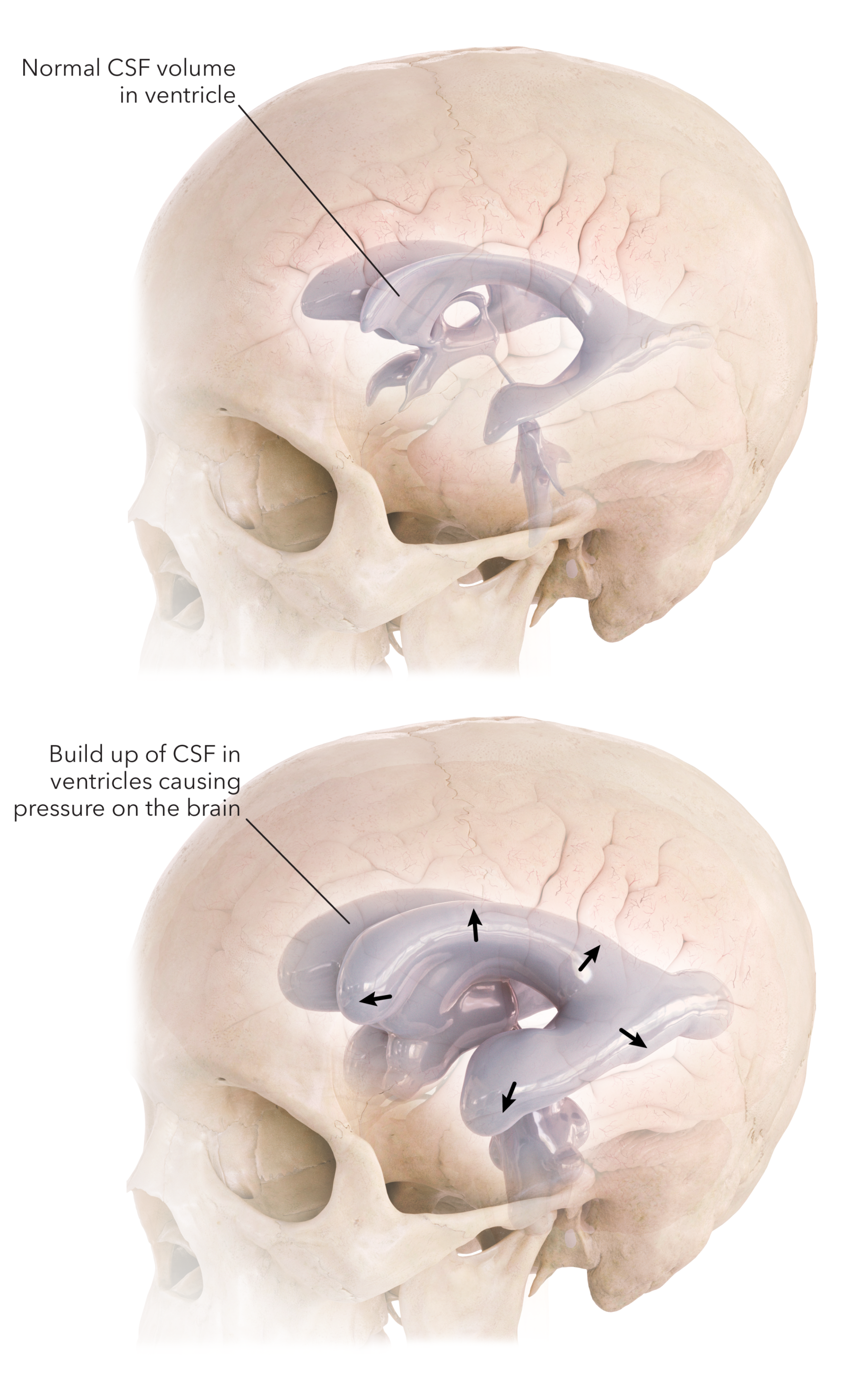Symptoms of Acoustic Neuroma

Acoustic neuromas, also known as vestibular schwannomas, can cause symptoms that negatively affect a patient's life. If an acoustic neuroma goes untreated, these symptoms may worsen over time. Recognizing the early signs and symptoms of an acoustic neuroma is the first step to getting treatment for this condition and preventing it from further affecting your health.
What Causes the Symptoms of an Acoustic Neuroma?
It’s important to understand the location where acoustic neuromas are commonly found. The vestibulocochlear nerve, also known as the eighth cranial nerve, is comprised of the vestibular nerve and the cochlear nerve. These nerves have distinct nuclei in the brainstem that control important functions.

Figure 1: Anatomy of the internal, middle, and external ear. Acoustic neuromas often surround the vestibulocochlear nerve complex.
The vestibular nerve is responsible for relaying information related to body position, motion, and balance. It coordinates communication between the eye muscles, postural muscles, brainstem, and cerebral cortex to allow you to know where in space your body is located and how it is moving. If the vestibular nerve is not working well, people can experience imbalance, vertigo, and falls.
Your cochlear nerve, also known as the auditory or acoustic nerve, is responsible for your hearing. It works by transmitting sound from the ear to the cochlear nuclei in the brainstem and then to the primary auditory cortex located in your temporal lobe of the brain to perceive and process sounds. If the cochlear nerve is injured, it can cause hearing loss in that ear. If severe, a patient can be deaf in that ear.
Because acoustic neuromas often compress vestibular and cochlear nerves, they can interfere with the signals your body needs to maintain balance and hearing. These are the most common symptoms of acoustic neuromas.
Why should you have your surgery with Dr. Cohen?
Dr. Cohen
- 7,500+ specialized surgeries performed by your chosen surgeon
- More personalized care
- Extensive experience = higher success rate and quicker recovery times
Major Health Centers
- No control over choosing the surgeon caring for you
- One-size-fits-all care
- Less specialization
For more reasons, please click here.
What Are the Symptoms of an Acoustic Neuroma?
The most common symptom of acoustic neuroma is hearing loss on one side. These tumors usually develop on the vestibulocochlear nerve complex on one side of the body only. So, symptoms will only affect the side of the body where the acoustic neuroma is present. Of note, a rare genetic disorder (neurofibromatosis type 2) is associated with bilateral acoustic neuromas and accounts for less than 5% of all acoustic neuroma cases.
Specific symptoms caused by an acoustic neuroma include the following:
Hearing Loss
Roughly 90% of patients who develop an acoustic neuroma will experience unilateral hearing loss or difficulty hearing in one ear. Hearing loss typically is subtle at first. Patients often have trouble hearing higher frequencies. It is not uncommon for patients to notice trouble hearing while holding the phone on the ear on the side of the tumor.
As this symptom progresses, patients become less able to distinguish individual sounds. Eventually, if the acoustic neuroma continues to grow and goes untreated, it can result in total hearing loss in the affected ear. The hearing loss typically progresses over a matter of years. However, partial, or total hearing loss can occur suddenly in rare cases.
Tinnitus
Your inner ear contains tiny, delicate hair cells that are necessary for interpreting sound. Movement of these hair cells sends signals to the brain to help it interpret and make sense of sounds. However, an acoustic neuroma can put pressure on these hair cells, bending and damaging them. If this happens, the cells can send random and spontaneous electrical impulses to your brain, causing a condition known as tinnitus.
Tinnitus presents as a continuous tone in your ear, and it may constantly be present, or it may come and go. If intermittent, it may become more frequent or severe over time. The tone commonly presents as ringing, but hissing, buzzing, clicking, and low-pitched roaring have been reported. This symptom may accompany hearing loss, or it may occur independently.
Balance Issues
The signals sent to your brain from the vestibular nerves are responsible for maintaining balance. When an acoustic neuroma compresses the nerve, it disrupts signals from getting through, causing you to lose your sense of balance. As a result, people with acoustic neuromas often experience instability when walking and a general feeling of shifting or tilting, usually toward the side of the body that contains the tumor.
In rare cases where the acoustic neuroma grows large enough to press on parts of the cerebellum or brainstem, a person will experience trouble with coordination and is at higher risk of severe vertigo, dizziness, and falls.
Headaches
A large acoustic neuroma can push against the protective covering of the brain. This lining, called dura, contains sensory nerve fibers. As the sensation of pressure from the acoustic neuroma on the dura grows, it can cause a headache that ranges from dull to aching. While the headache is usually on the side of the head where the tumor is located, pain can also radiate to the neck or the front or top of the head.

Figure 2: The protective covering of the brain (dura) is heavily innervated. Pressure from tumors, such as an acoustic neuroma, can cause pain and headache in a wide variety of distributions.
Facial Numbness, Weakness, or Twitching
The fifth cranial nerve, also known as the trigeminal nerve, transmits sensation from your face. As an acoustic neuroma grows larger, it can put pressure on the trigeminal nerve. This pressure may cause numbness or tingling of the face.
The seventh cranial nerve, the facial nerve, controls muscle movement of many facial muscles. If a tumor grows large enough to put pressure on the facial nerve, you may also experience repeated tics or twitching of the muscles around the forehead, eyes, eyebrows, and mouth. You may also experience eye irritation and blurred vision due to the numbness interfering with your ability to blink or fully utilize the muscles of the eye.
Facial weakness is an uncommon symptom, only seen when the acoustic neuroma grows very large, and it's rare for a person to experience this weakness when first diagnosed with an acoustic neuroma. Partial or complete facial paralysis can also occur, though it is an infrequent symptom of an acoustic neuroma, even a particularly large one.
The symptoms of an acoustic neuroma can seem difficult to handle, especially if the condition progresses. Treatment for it is highly dependent on the size of the tumor, the age and health of the patient, and the presence of symptoms. However, the outcome for an acoustic neuroma is generally good with treatment and monitoring.
Do Acoustic Neuroma Symptoms Get Worse Over Time?
While acoustic neuromas are benign, meaning that they don't invade and destroy other cells and tissues, they have the potential to grow larger if they go untreated. Most acoustic neuromas grow slowly. However, when they become bigger, they can compress nerves and nearby structures, causing gradual worsening of your symptoms.
If an acoustic neuroma grows larger than 3 cm, it can press on other cranial nerves that go to your eyes, face muscles, and throat. This can cause problems with eye movement, voluntary control of facial muscles, and swallowing. In certain instances, an acoustic neuroma can grow so large that it compresses your brainstem causing worsened balance, falls, and inhibition of vital life sustaining bodily functions. When severe brainstem compression occurs, it can block flow of cerebrospinal fluid through its natural drainage pathway and increase pressure on the brain, causing a condition known as hydrocephalus.

Figure 3: When cerebrospinal fluid (CSF) is unable to drain properly, pressure builds within the ventricles and is exerted on the brain.
This condition of excess fluid in the brain, known as hydrocephalus, has symptoms that vary depending on age. For people who have an acoustic neuroma, the most common issues related to hydrocephalus are:
- Headache
- Vision problems
- Loss of balance
- Bladder control problems
- Diminished concentration and memory
- Nausea and vomiting
- Excessive sleepiness
- Impaired cognitive skills
If left untreated, the prognosis for hydrocephalus is highly unfavorable.
Key Takeaways
- The most common symptoms of an acoustic neuroma include hearing loss, tinnitus, and issues with maintaining your balance.
- If an acoustic neuroma grows, it may press on vital structures and nerves including the brainstem.
- Untreated acoustic neuromas that continue to grow can cause more severe symptoms which can significantly impact quality of life.
- By recognizing the symptoms of acoustic neuroma, you can take the appropriate steps to talk to your doctor about testing and treatment options.











